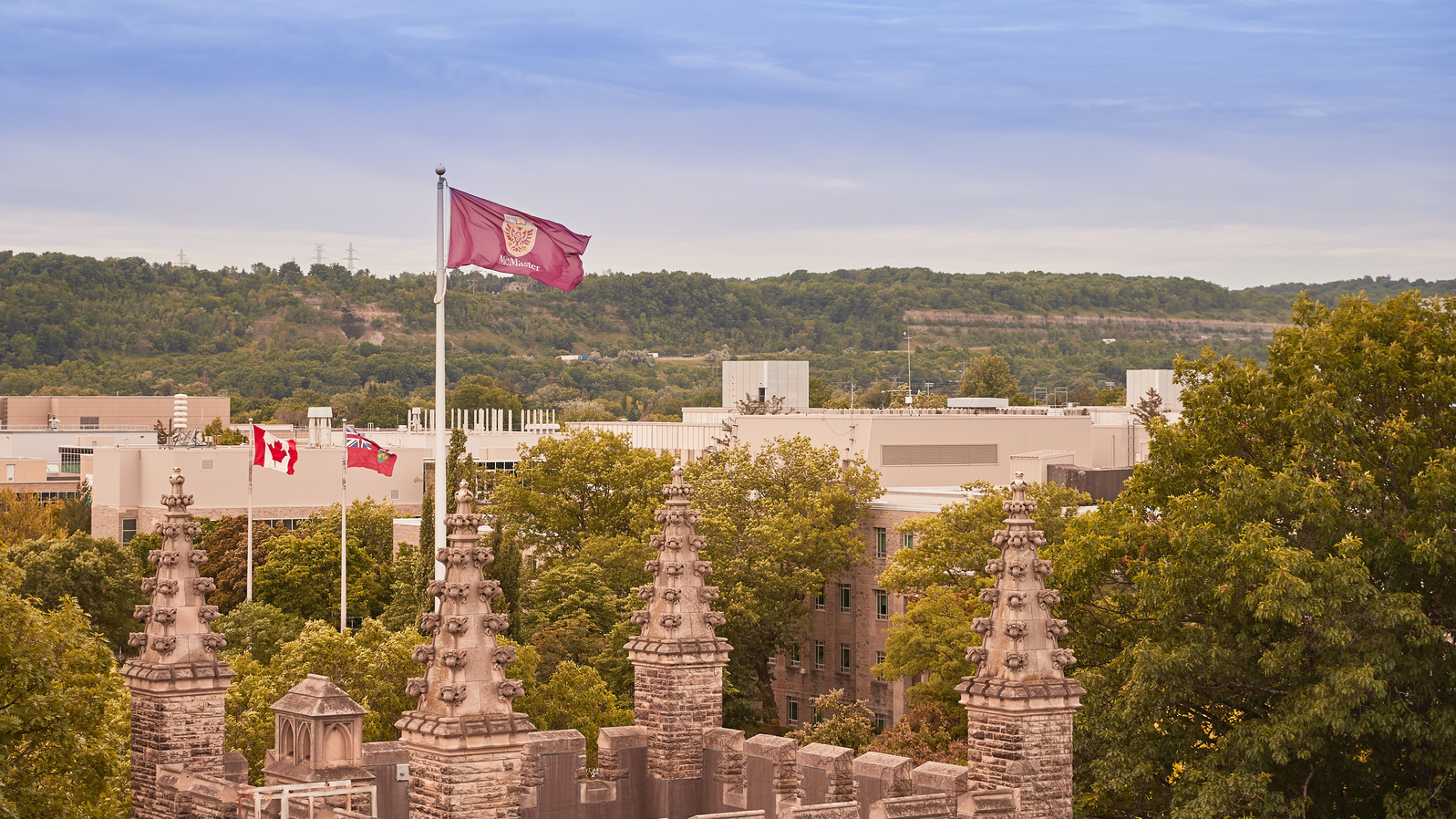Information Box Group

1881
Foundation
The Toronto Baptist College – later to become McMaster University – is founded with an endowment from Senator William McMaster.
1887
McMaster begins
The Toronto Baptist College and Woodstock College merge, forming the newly named McMaster University. The university offers courses in arts and theology that lead to a BA degree.
First graduating class
McMaster confers its first undergraduate degrees.

Move to Hamilton
1927
The university administration decides to transfer the university from Toronto to Hamilton, following a campaign by the Hamilton Chamber of Commerce.
First classes in Hamilton
Financed by the Baptist Convention of Ontario and Quebec and the citizens of Hamilton, McMaster University holds its first academic session in Hamilton on lands transferred to the university by the Royal Botanical Gardens.
Creation of science programs
Post-war demands for education in the sciences leads to a reorganization of the university, creating two federated colleges: the denominational University College, which offered arts and divinity programs, and the non-denominational Hamilton College, which offered science programs and could receive public funding.
First PhD offered
McMaster offers its first PhD program.
Science buildings created
The university completes three new academic buildings for the sciences.
McMaster becomes non-denominational
To secure further public funding for humanities and social sciences programs, the university reorganizes, dissolving the existing colleges and creating a non-denominational institution.
Creation of faculty of Graduate Studies
PhD programs are consolidated in a new Faculty of Graduate Studies.
Opening of the McMaster Nuclear Reactor
The McMaster Nuclear Reactor, the only university-based research reactor in the Commonwealth at the time, begins operating.
Medical school opens
McMaster establishes a medical school and teaching hospital.
Development of the McMaster Model
McMaster University Medical School pioneers the McMaster Model or problem-based learning, a student-centred, problem-based interdisciplinary approach to learning.
Faculties established
The Faculties of Business, Engineering, Health Sciences, Humanities, Science and Social Sciences, each under the leadership of a dean, become the established divisional structure of the university.
Personal progress index introduced
McMaster’s medical school pioneers progress testing, developing a personal progress index based on innovations from the University of Missouri-Kansas and the Maastricht University. This model is now used across Canada, the US, Europe and Australia.
Bertram Brockhouse wins Nobel Prize
Professor Bertram Brockhouse, who worked at McMaster from 1962 until his retirement in 1984, is awarded the Nobel Prize in Physics with Clifford Shull of MIT.
Myron Scholes wins Nobel Prize
Alumnus Myron Scholes is awarded the Nobel Prize in Economics, which he shares with Robert C. Merton.
3M Fellows
Two of the 10 annual 3M National Teaching Fellows are from McMaster University. Two instructors are named 3M teaching fellows again in 2012. Overall, 15 McMaster teachers have been named 3M Fellows since 1986.
Research intensity
McMaster is named the most research-intensive university in the country by Research Infosource.
Engineering programs recognized internationally
McMaster’s civil engineering program is ranked 29th in the world by the Academic Ranking of World Universities and ranks second in Canada for metallurgical engineering.
World rankings increase
McMaster is ranked 78th in the world and fourth in Canada by the Times Higher Education World University Rankings. The Michael G. DeGroote School of Medicine is ranked 23rd in the world and second in Canada. McMaster’s nursing program ranks 27th in the world and physiology 36th by the QS World University Rankings.
McMaster awarded Global Teaching Excellence Award
McMaster wins the second-ever Global Teaching Excellence Award from the UK-based Higher Education Academy, in partnership with Times Higher Education.

